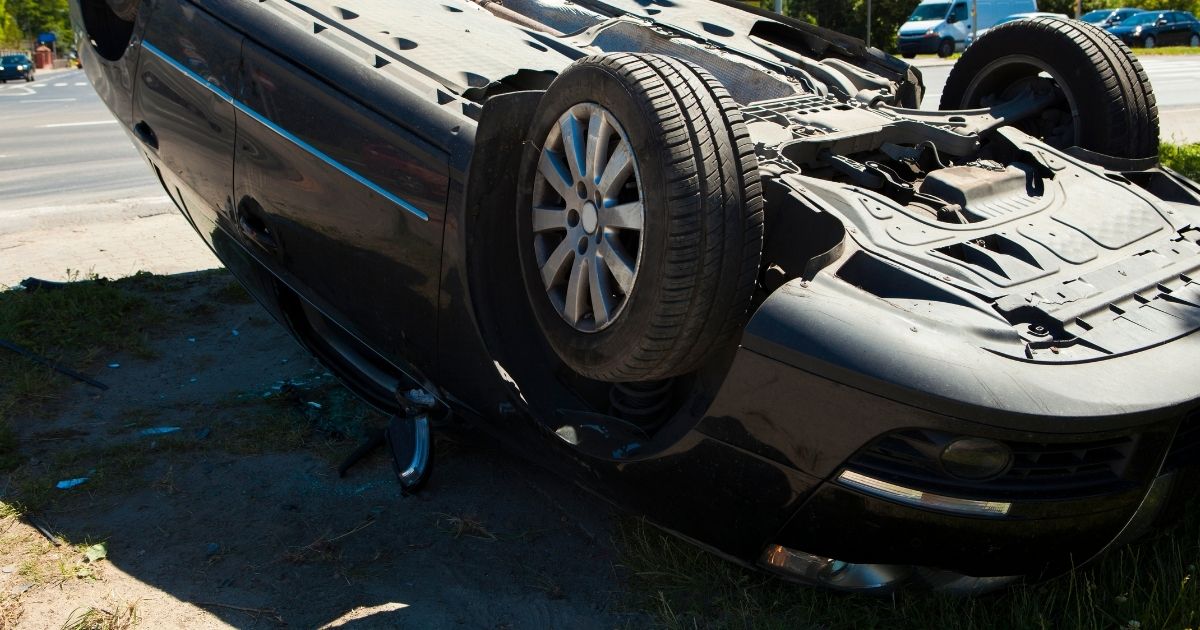What Are the Causes of Rollover Car Accidents?

Rollover car accidents are not just scenes from action movies or television dramas; they are real-life events that can happen to anyone on the road. They occur when a vehicle flips onto its side or roof during a collision or sudden maneuver, often resulting in serious injuries or fatalities. Understanding the causes of rollover accidents can promote road safety and prevent future incidents.
These crashes result from a combination of factors. High speeds increase the risk of losing control, particularly during sharp turns. Other driver behaviors, such as driving under the influence or distracted driving, significantly elevate the risk. Additionally, poor road conditions, like sharp curves or debris, can contribute to loss of control and increase the likelihood of rollovers.
How Does Vehicle Design Impact Rollover Accidents?
Vehicle design significantly influences the occurrence of rollover accidents. Vehicles with a higher center of gravity, such as SUVs, vans, and trucks, are more prone to rollovers, especially with a narrow wheelbase.
That design combination decreases stability, making the vehicle more susceptible to tipping over during abrupt maneuvers or turns. Vehicles lacking safety features like electronic stability control (ESC) are also at higher risk.
Are Certain Roads More Prone to Rollover Accidents?
Yes, some types of roads pose a higher risk of rollover accidents, including:
- Curvy Roads: Roads with sharp curves or bends require careful driver focus to prevent rollover accidents, especially at high speeds.
- Rural Roads: Rollover accidents are more common on rural roads, which have fewer safety features and higher speed limits.
- Unpaved Roads: Unpaved roads or roads with loose gravel can reduce traction and stability, increasing the risk of rollovers.
What Kind of Injuries Do Rollover Accidents Cause?
Rollover accidents can cause various injuries due to the violent forces involved. These injuries may include traumatic brain injuries (TBIs), spinal cord injuries, fractures, internal organ damage, and lacerations. Occupants may also suffer from whiplash, concussions, and soft tissue injuries.
The severity of injuries varies depending on factors such as the vehicle’s speed, the angle of impact, and the use of seat belts and other safety restraints. Seeking prompt medical attention is critical to assess and treat these injuries effectively and prevent long-term complications.
What Precautions Can Drivers Take to Prevent Rollover Accidents?
To reduce the risk of rollover accidents, drivers can:
- Drive at Safe Speeds: Adhere to posted speed limits and adjust speed according to road and weather conditions.
- Avoid Distractions: Stay focused on the road and avoid distractions like texting, talking on the phone, or adjusting the radio.
- Maintain Proper Tire Pressure: Regularly check and maintain proper tire pressure to ensure optimal vehicle stability.
- Exercise Caution on Curves: Slow down and approach curves with caution, particularly on unfamiliar or winding roads.
If your vehicle starts to roll over, you may be able to stop it. Turn the steering wheel toward the roll to help stabilize the vehicle and regain control. Avoid overcorrecting, as this can worsen the situation. If possible, gently apply the brakes to slow down the vehicle. However, avoid sudden or harsh braking, as it can destabilize the car further.
Secure yourself by gripping the steering wheel firmly with both hands and keeping your feet away from the pedals to prevent accidental acceleration or braking. Finally, keep your head away from the windows and roof of the car to minimize the risk of head injuries.
Let Our Skilled Norristown Car Accident Lawyers at the Law Firm of Anthony C. Gagliano III, P.C. Fight to Protect Your Rights After a Rollover Accident
If you or a loved one was involved in a rollover car accident, contact our experienced Norristown car accident lawyers at the law firm of Anthony C. Gagliano III, P.C. for skilled representation and compassionate support during this challenging time. Call 267-861-7100 or submit our online form for a free consultation. Located in Philadelphia and King of Prussia, Pennsylvania, we serve clients in Montgomery County, Delaware County, Bucks County, Chester County, and Norristown.

